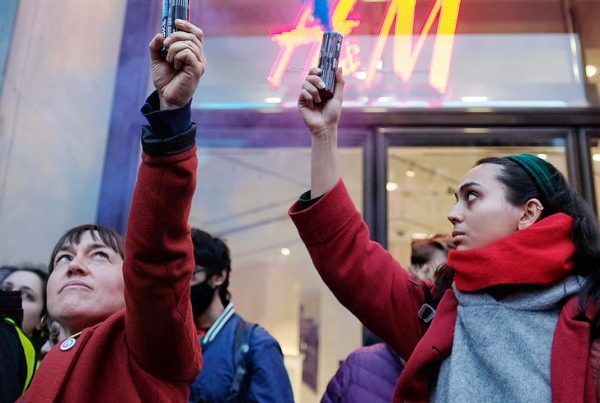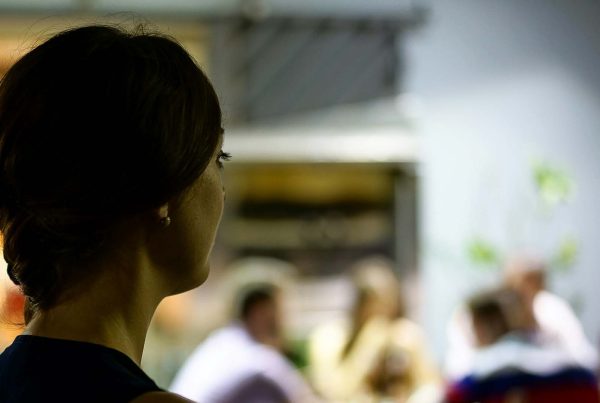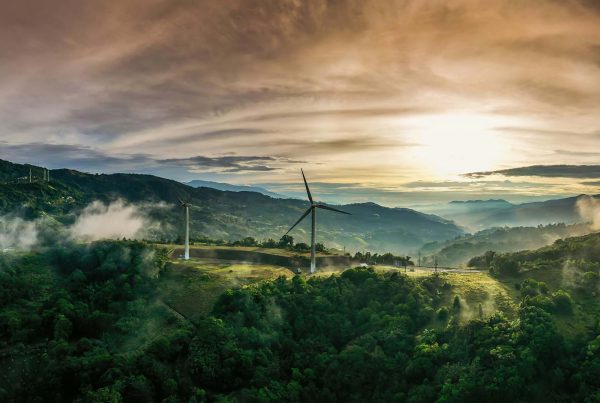Most of us are grappling with AI a bit these days. I quite like the fact that AI tools can show me how a new haircut might look and recommend a good restaurant, so clearly, I’ve got bucketloads to learn about this new world order, as AI has a whole lot more to offer than this.
Having cut my teeth in the conservation sector, I spent many a day helping with data collection. So, I got thinking lately about how AI is helping to protect our planet’s biodiversity and natural resources and what this means for the people leading.
It’s amazing that satellite imagery, drones, and automated cameras can help detect deforestation, track endangered species, and prevent poaching in real time not to mention analysing vast amounts of data to help make informed decisions.
Wildbook, for example, is an AI-driven platform that uses machine learning to analyse photos and videos of wildlife taken by researchers. It can identify individual animals based on unique patterns like whale flukes or zebra stripes (I remember trawling through an image library doing just this!). Global Forest Watch, powered by AI and satellite imagery, provides near-instant alerts when tree cover loss is detected, while Rainforest Connection uses old mobile phones equipped with AI-powered acoustic monitoring systems to listen for the sounds of chainsaws and trucks in protected forests. Once an anomaly is detected, authorities can be alerted immediately. Wow!
Chirrup is a bioacoustic monitoring platform that uses AI to identify wild bird species on estates and farms, providing insights into biodiversity health and helping land managers monitor and improve biodiversity. I asked Hollie Devitt, Chirrup’s Biodiversity and Sustainability Advisor, what innovations like this mean for the changing nature of talent in the conservation sector.
‘As AI becomes more embedded in conservation, the demand for skilled data scientists, AI specialists, and machine learning engineers will only increase,’ she explains. ‘AI-driven solutions such as species identification, habitat monitoring, and predictive modelling rely on expertise traditionally found in the commercial tech sector.’
She continues, ‘The challenge ahead will be competing with big tech, finance, and healthcare, where salaries and career progression are often more lucrative. Conservation organisations, NGOs, and nature-tech startups must find new ways to attract and retain talent whether through innovative funding models or hybrid career pathways, rather than relying solely on mission-driven appeal.’
For organisations like Earthwatch, which have been engaging non-scientists in data collection long before the term “citizen scientist” was invented, the arrival of AI must pose some interesting questions. Sasha Woods, Director of Science and Policy at Earthwatch (Europe), reassures me that ‘even when AI systems have all the data, they need to produce fairly robust models, it will still be important to validate those models to ground truth the data.’ She adds, ‘Citizen science can be very powerful in that sense,’ referencing Earthwatch’s Great UK WaterBlitz, where participants assessed the environment in granular detail at a national scale.
But more importantly, Sasha reminds me that ‘citizen science isn’t just about data collection; it’s about engaging, educating, and empowering people to connect with nature. I don’t believe AI will ever be able to replace real people in that sense,’ she says.
So, it is safe to say that conservation is evolving beyond traditional fieldwork, and leaders will need to integrate AI-driven insights even more into analysis, policy, decision-making, influencing, and funding strategies. Skill sets needed in this sector will expand and evolve, and hopefully, AI will continue to give a boost to global conservation efforts where it is urgently needed.
But of course, in this new world, conservation leaders will need to navigate the ethical implications of AI as well considering how to balance it with Indigenous knowledge and ensuring AI tools do not reinforce biases. The team at Unearthodox (formerly the Luc Hoffmann Institute) are exploring what kinds of knowledge are embedded in AI systems and whose values they reflect, asking the critical question: can these models become ecological allies or threats?
Lakshmi Venugopal, Insights and Futures Lead at Unearthodox, says, ‘As AI gets increasingly embedded into decision-making, the need for new forms of leadership is emerging. This means leaders who can facilitate work across disciplines, conservation, AI, ethics, Indigenous knowledge, and law, and connect these siloed disciplines. We need leadership that can foster collective accountability, deepen ethical imagination, and co-create futures rooted in reciprocity and care.’
For her, the new talent needs are not just about ecological science alongside technological skills, ‘but also the capacity to facilitate open, generative dialogue, not only to mitigate risks, but to cultivate technology that serves the more-than-human world.’
To find out how Oxford HR can support talent and leadership needs in conservation organisations, get in touch with Zoe Greenwood, Head of Environment, Climate and Conservation.

Zoe Greenwood
Zoe joined Oxford HR in 2018 after 16 years working in environment and climate. She has led the growth of the Environment, Climate, Conservation and Sustainability sector specialism in the organisation, working with a wide range of client such as WWF, Greenpeace, Mighty Earth, Global Canopy, Ethical Tea Partnership, the Clean Air Fund, Manufacture 2030, Climate Impact Partners and many more.
She is committed to finding and supporting leaders to address the climate and nature emergency. Zoe has a background in learning and development and communications and has worked in India, Ghana, Kenya, China, Brazil, Costa Rica, Brazil and Malaysian Borneo. She has collaborated with local organisations, global NGOs and climate scientists and to design and deliver nature-based behaviour change programmes and worked with the corporate sector to embed sustainability thinking into their operations and culture.
Zoe has a postgraduate degree from the Institute for Leadership and Sustainability (University of Cumbria), she is a trained coach and facilitator and Co-Founder of the Climate Change Coaches.



